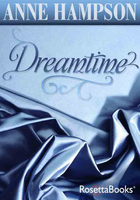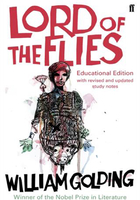An early spring sun, all light and no warmth, was slipping behind the gargoyled, columned mass of the Yaroslav station as a black Zil pulled smoothly up to the main entrance. The policeman posted there stiffened as he noticed the large, official-looking car. The driver and his companion in the front seat, both small-eyed, high-cheekboned Slavs, got out and talked briefly with the policeman. Then they returned, pulled several pieces of baggage from the car's trunk and swiftly strode inside the station. Immediately, a second car, a Chaika, pulled up. Five tall, dark-suited, somber men emerged and fanned out. Two positioned themselves on either side of the entrance, conspicuously alert, while the others walked through the station entrance and disappeared into the converging crowd of people.
Inside the Zil, Alex Cousins glanced at his watch. It was four fifteen. The train was scheduled to leave at five, precisely five, Zeldovich had said confidently.
"They will take care of the details," Zeldovich assured him.
"Thank you," Alex responded. He had no illusions about Zeldovich.
It had been an uneventful trip from the dacha near Barvikha to the Yaroslav station. Viktor Moiseyevich Dimitrov, the sixty-nine-year-old General Secretary of the Communist Party of the Soviet Union, had been expansive at lunch. His appetite had returned along with his color, and he had stuffed himself with huge portions of black bread and globs of sour cream heaped on top of deep bowls of borscht. The chemotherapy was working, Alex had observed, his doctor's pride swelling as he reviewed the charted progress and the past six weeks of endless diagnosis, observation and treatment. At best, the disease was tricky, and as cunning as a jungle beast. Acute myeloblastic leukemia was a microscopic war between the proliferating white blood cells and the rapidly weakening red blood cells in Dimitrov's body. And the reds had been losing. Now, Dimitrov was no longer in the depressed manic state Alex had initially encountered.
At lunch a waiter had brought a fat bass, broiled brown and dripping with butter. Dimitrov had watched its arrival, broadly smiling with boyish glee. Alex had been allowing him to fish again in the Moscow River, which meandered a few yards from the rear of the dacha. Fishing was Dimitrov's one passion, aside from exercising his power, and being able to fish again had restored the General Secretary's buoyancy, reassuring him that he had been snatched, however temporarily, from the grave.
Alex had only picked at the fish. Despite his anxiety, he was somewhat excited by the prospect of his upcoming Siberian journey. Although, under different circumstances, he now would have been searching back in time, with all the emotion that nostalgia engenders, to prepare his mind for the mystique of the adventure. "It is a legacy of the soul," his grandfather, that old Siberian fox, would have said. But to begin such a journey under duress seemed, somehow, incongruous. He looked down at the fish, runny with butter, the skin crisp and shiny, wondering if he could force his appetite.
"Delicious, Kuznetzov. Eat!" Dimitrov commanded, jabbing his knife forward, a trickle of butter escaping along the side of his mouth. Despite himself, despite what he suspected, Alex felt satisfaction in Dimitrov's enjoyment. It was the damndest personal sensation, this dichotomy within himself, this raging war between his odd affection for the man and the knowledge of his impending act. Could it be possible he was mistaken? That all the comings and goings, the odd bits of information, the strange admissions, and little confessions of Dimitrov himself, were only a distorted view through some faulty prism? I am a doctor. I am apolitical. You had no right to draw me into this, he wanted to shout across the table, trapped now like a fly that has fatally touched the flypaper with the tip of one wing.
"Why the long Siberian exit?" he had asked. "A flight would be much faster."
"Nonsense," Dimitrov had said blandly, as if he were merely persuading Alex to have another glass of brandy. "How could you deprive yourself? How many chances like this do you get in life? Whoever heard of a Russian with no curiosity about his past? Don't be foolish. I insist."
"But my wife-" Alex had answered mildly, not able to bring himself to even the first plateau of genuine protest. His wife was certainly no reason to return. He might have been more accurate to say, "My life."
"Take a look at where you began," Dimitrov persisted, knowing that there was truth there, a match to dry tinder, for Alex had often longed to see the place from where his grandfather had escaped. But his escape had been only physical. In the old man's mind and heart, he had never really left Siberia.
"I'll come back," Alex mumbled. "I'll do it another time."
"Nonsense," Dimitrov said. "It is my gift. Consider what you have given me."
Another old fox, Alex thought. Why don't you tell me the truth? I know too much. Perhaps you'll never let me out.
"One more week. What will it matter?"
Alex had been gone six weeks.
"The Politburo meets in seven weeks," the American Secretary of State had emphasized again and again. "You must keep Dimitrov alive until that meeting," he might have said if he had not been so well schooled in diplomacy. Alex had, of course, understood the message and had done his duty. How na?ve and ineffective the President and the Secretary now looked in retrospect. Dimitrov had outmaneuvered them both. Still worse, he, Alex, could be characterized as a co-conspirator. And this trip was his fat reward for success. Let me put you in a rolling prison across the wastes of Siberia while I prepare a holocaust. Did they think he had brains the size of a pea? Suddenly the idea of seeing his wife again-dear, bland, irritating, unaffectionate Janice-seemed almost attractive.
How they must have chuckled over their good fortune in discovering Alex, a Russian-speaking doctor who was an expert on leukemia. And he had been right under their noses at the National Institutes of Health. At first he had been very unreceptive. Couldn't they have found someone else for this job? He was above politics, disgusted with their silly little power games. The preservation of human life, the alleviation of suffering, was the bedrock of his motivation. He had actually willed himself to be apolitical, dismissing everything that was not within the confines of his expertise. In mankind's stupidity, man inflicted so much misery on himself, and could not seem to organize society for his own benefit. But that was the politicians' problem. One could not bleed over uncontrollable factors. At least in his field he could focus on a recognizable enemy. All else was trivia, he had convinced himself. Now, in Moscow, the events of the last six weeks had effectively demolished that self-delusion.
As Dimitrov's strength returned, so did his cunning. He had struck exactly the right chord for a Russian-antecedents, roots. Russians and their damned ancestor fixation. To this day, every child born was given two names-his own and his father's. "Aleksandr Aleksandrovich Kuznetzov" was the name, which appeared on Alex's original birth certificate. He had changed it to Alexander Cousins, in spite of his father's passionate opposition. But he could not change the heritage that had been programmed into his fantasies from birth. Siberia-a myth weathered and matured by repetitive storms of memory.
His grandfather had been caught in the Czar's penal machinery as a boy and sent to Siberia as punishment. He had helped build the Trans-Siberian Railroad, and his labor shortened his sentence. He ended up in Irkutsk, which was dubbed the "Paris of Siberia." After several years there, his grandfather took his wife and young son, and escaped to America. It was with these stories of youth, hardship, despair, danger and escape that Alex's ancient gnarled grandfather had mesmerized him, ever since he was old enough to understand. As he grew older he could pick Siberia out on a map, roughly along the fifty-fifth degree of latitude. He learned that it was an area of five million square miles that could encompass all of the United States, including Alaska, all of Western Europe, and still have hundreds of thousands of square miles left over.
The route the family had taken was through farms and cattle ranches, through trackless virgin forests, around the earth's deepest lake, to heights where the sky is fair for all but sixteen days of the year, down to places where swarms of insects tortured men and animals, and through pockets scourged by unspeakable disease and Manchurian tigers. During those interminable first days with Dimitrov, Alex had, of course, dwelt on these stories with relish, especially after seeing Dimitrov's enchanted reaction. It was all part of the treatment. Who could have expected it to be flung back at him like a weapon?
Alex's father had actually returned to Siberia years later himself, where he served as an interpreter with General Graves' American expeditionary force in Vladivostok. So it had passed down through the blood, a genetic yearning to rediscover some link to the beginning. Now Dimitrov was using Alex's roots to put him on ice, literally, to keep him under his thumb until the time came, perhaps, to blow him out like a candle. He would be Dimitrov's health insurance until the meeting. And then? What would it matter by then? Fait accompli! A few million Chinese atomized, the China question solved. Even Dimitrov would not want to live beyond that. Only a dying man could bring himself to such a decision. If only Alex could wash his suspicions from his mind. But even that would not help. Dimitrov sensed his knowledge, and that was enough.
"Siberia is a great immensity," Dimitrov had said at lunch, his eyes peering out from under thick, shaggy eyebrows. "Cold, wonderfully cold."
"I'll wear the fur-collared coat and hat that you gave me," Alex said stupidly. Perhaps he should have insisted more forcefully on flying home. Or demanded that they let him talk to the President. But that would have confirmed what Dimitrov suspected. They would never let him go. Not now! Maybe not ever.
"And keep your balls warm," Dimitrov had warned with mock seriousness, his eyes twinkling, his famous charm called into action.
Still, Alex could detect in Dimitrov's manner the usual anxieties aroused by the departure of a trusted doctor.
"I could stay longer if you wish," Alex had said when Dimitrov first suggested the trip. He was deliberately trying to frighten his patient, a lapse of ethics that he would not have thought possible a few weeks before.
"But you have already said I am in remission," Dimitrov responded gravely, almost a trace of alarm. Alex watched the deep eyes, seeing the fear.
"At the moment."
"So I am still a time bomb?"
"Let's not talk of bombs," Alex had replied, regretting it instantly. If Dimitrov understood, his expression did not reveal it. But Alex knew that the information had been transmitted.
"Well then," Dimitrov had said, clearing his throat. "What is your best guess?"
"I have told you"-Alex paused-"I do not guess."
"Days, weeks, months?"
Alex sighed. This interrogation about time again. But he could not bring himself to lie about this despite his own sudden thirst for survival. "The average is six to nine months, but some have lived as long as five years." He watched Dimitrov's eyebrows twitch.
"And the short side?"
"Days. Perhaps weeks."
"Days?"
"I am not God," Alex said testily. It could spring anytime, this leopard of a disease, he thought. It will spring from behind a rock and sink its teeth into the jugular.
Dimitrov remained silent for a long time.
"Well, I will know where to find you," he had said at last.
"No doubt about that," Alex said cautiously. "That is, if the trains run on time."
"You will be amazed at what you will see," Dimitrov had said, his spirits brightening for a moment, then faltering again. "But Siberia is also a dangerous place. Like your West years ago."
"Now you're worrying about my health."
"It is of some importance," Dimitrov said grudgingly, averting his eyes. "You are, after all, the medical magician. I have a vested interest."
"What can happen to me in a week on your great Trans-Siberian Railroad? Your tourist brochures are quite ecstatic about it," Alex had taunted.
"Anything can happen." Dimitrov's eyes narrowed.
"I'll watch out for the food and the cockroaches," Alex said.
"And the jackals."
"On the train?"
"They are everywhere," Dimitrov had said quietly.
"I shall be a phone call away, Comrade Dimitrov," Alex said, tired of sparring.
"There is no phone on the train," Dimitrov said, brightening again. "But there are eighty stops." He smiled and shook his head, tapping a finger on his desk.
"It is too close to the Chinese," he had said. "They are like a fish bone in the throat."
"Who?"
"The Chinese."
The older man stroked his chin, then acknowledged Alex again.
"You will enjoy it."
"If you say so."
When Alex had detected the first signs of a remission of the disease, confirmed both in tests and in the sudden explosion of energy in Dimitrov, he had noted an immediate surge of comings and goings in the dacha. When officials and military men were with Dimitrov, Alex was politely accompanied to other parts of the dacha, usually back to the medical facility, which had been installed in one wing. At first, he was only mildly curious about the sleek Chaikas pulling up the frozen gravel road, the sudden beefing up of the military, the appearance of increasing numbers of heavyset men in civilian dress, tense and alert, looming in every corner. It was of no concern to him, he told himself. His business was only with Dimitrov's bloodstream.
"You are pushing too hard," he had told Dimitrov in his bedroom one night. Insisting on admittance, Alex had almost barged his way in. Exhausted, Dimitrov was propped against the pillows.
"It is a question of time," he had replied weakly.
"Don't think about it."
"That is all I think about."
"Even if you were well, all this activity would exhaust you," Alex had said sternly.
"There is something I must do before I…" The words trailed off. Remembering what he had heard at the White House, Alex was reminded of the imposed deadline, so incongruous, even demeaning. He watched the gray-faced older man fight the heaviness in his lids, then finally slip into a deep sleep. Papers and maps slid to the floor beside the bed. Alex had gathered them up and placed them on a nearby table. His eye had caught the designations on them-"People's Republic of China."
In the light of the bedside lamp, the details of the map were clearly visible. The words "Missile Disposition" were written across the white edge of the map. Not without a tug of guilt, he puzzled over a series of random "X" marks on the China side, then, bending to explore further, he read the words "first strike potential destruct" scrawled in pencil, but still quite legible. Then he turned off the light and tiptoed from the room, past the brawny, expressionless guards who eyed him with contempt.
But what did I do to betray my knowledge? Alex now wondered, sitting in the soft interior of the big Zil. How do they know that I know?
"We must go," Zeldovich said.
Alex grabbed his bag of medical journals and followed. As they exited the car a brief blast of biting cold cut through them before subsiding quickly as they entered the crowded train station, where a loudspeaker crackled. He could barely make out the words 'Trans-Siberian,' 'The Russiya'. The crowd-old men with deeply rutted faces, large-bosomed mothers in thick coarse coats with children clustered around them, men squatting over outsized bundles-stirred and gathered their belongings. Then they began to line up at the gates, where a hard-eyed train agent looked over their papers.
"Please wait here," Zeldovich ordered, leaving Alex standing near a snack counter where a red-faced woman dispensed an unappetizing variety of chicken, and a greenish beer.
The loudspeaker crackled again, barely audible over the sudden whistle of the wind outside: "Trans-Siberian Express, Track Four, leaving-"
Alex strained to hear, then looked at his watch. It was four thirty. The train was scheduled to leave in half an hour.
Watching the line as it threaded its way slowly through the checkpoint, Alex noticed the arrogance of the ruddy-faced train agent, who looked over the papers contemptuously, sneering into each person's face. Seated on either side of him were two of the men who had been in the Chaika, who also reviewed the papers, checking information against lists on clipboards. To one side Alex saw Zeldovich and the stationmaster in close conversation, looking toward him.
The line moved ponderously. The heavy winter clothing everyone wore made the group look nondescript, an amorphous glob, gender and class distinctions blurred. Most of the passengers accepted the agent's intimidation with resignation and humility. Alex could see the fear in their eyes as they stepped forward. One couple was shunted aside and interrogated by one of the men from the Chaika. Others stepped forward and would not be stared down. An attractive young woman actually opened her heavy coat, placing her hand on her hip and straightening to show her breasts, challenging the power of the three men. Even from a distance, Alex could see she was forcing the men into a special kind of submission. She passed through, dignity intact, her long coat flowing as she walked toward the train.
"When the others have moved through, you will go," Zeldovich's flat voice said. Alex hadn't seen the man come up behind him.
"This is one big pain in the ass," Alex said in English, knowing it would annoy Zeldovich, who spoke only Russian. The past six weeks had made them mutually antagonistic. Zeldovich, Dimitrov's fawning flunky, disgusted him.
They stood quietly for a while watching the line. Suddenly, a deep voice boomed out over the din. A tall man was confronting the train agent, pulling rank, demanding speed. He seemed vaguely familiar. Alex had seen him at Dimitrov's dacha.
"Yes, General," he heard the train agent say, his voice high-pitched and suddenly obsequious. The agent clicked his heels, indicating that he had once been a soldier. Satisfied, the tall General slowly lit a cigar, surely a Havana, and passed through the gate.
"General Grivetsky," Zeldovich mused, his forehead lined with a frown. He seemed momentarily confused, surprised at the general's presence.
"I saw him at the dacha," Alex said, hoping to contribute to Zeldovich's displeasure.
"You are mistaken," Zeldovich mumbled.
"Bullshit," Alex said in English, under his breath. He had grown used to their odd little lies by now, their automatic need to mask the obvious.
"He is a great hero of the Red Army," Zeldovich said suddenly, recovering his Russian sense of hyperbole. It was part of their syndrome to create celebrities. Worker heroes were everywhere, decorated for making cheese well or sweeping streets thoroughly. Even the train agent wore a medal. Railway work was quite an important profession in the Soviet Union, Dimitrov had said, cataloguing all the benefits-higher pay, early retirement, and a string of enviable privileges.
The train agent's encounter with the General had served only to increase his arrogance toward those still in line. Next up was a smallish man, squat, who moved with a pronounced waddle. Alex watched, his physician's mind suddenly analytical. The man's shoulders and arms were too big for his stumpy torso. He had probably developed them to compensate for the lower parts of his body, the muscles of which seemed badly atrophied. But the power in the shoulders and arms was unmistakable. The man could surely crush the train agent's head like an overripe melon.
When the man did not produce his papers fast enough, the agent railed at him in an obvious attempt to reassert his importance. "Goddammit, you slow nitwit, you're holding up the line."
Unruffled, the squat man moved deliberately, taking out his wallet in his own good time. For once the train agent had chosen someone who was not easily intimidated, someone used to little pyrrhic victories and silent rebellions.
The train agent took the passport angrily, shouted out the man's name, "Godorov," then let the passport drop to the stone floor at his feet.
The squat man looked at it for a moment, then slowly-painfully, Alex was certain-bent to retrieve it. As the man knelt at the train agent's feet, reaching with gnarled stubby fingers for the passport, Alex suddenly expected the train agent to kick the man in the head. But the blow did not come. The agent, perhaps conscious that his intimidation had failed, turned his venom on the next in line. A couple in their mid-thirties, whose fear seemed to sweat through their heavy clothing, sprang forward, cringing and obsequious. The agent smiled tightly as he looked at their papers. Grist for his mill, Alex thought, noting that the man had a Semitic look about him.
The train agent brushed the couple to one side as he threw their papers on the table and called for the next passenger. The couple, their faces ashen now, stood nervously, watching the papers.
Alex turned away in disgust and saw that Zeldovich was no longer watching the line but scanning the interior of the station. The men who had accompanied them from Dimitrov's dacha were ranged around the edges of the waiting room.
"Dimitrov takes no chances," Alex said.
"Not with you."
Turning back to the line, Alex searched among the faces for Westerners. A little woman, wearing a pink coat and an absurd white bunny hat, stood, talked nonstop to a tall man in a bowler hat. He had bent slightly to catch her words, and had been trapped in the endless stream. Alex smiled. She was the only bit of brightness in the drab train station.
A tall sandy-haired man reached the checkpoint. He tapped his foot impatiently while his papers were scrutinized. When he had been cleared, he started toward the train, turning once to lift his fist in what Alex suspected was an arcane obscenity.
The line continued to move forward and the loudspeaker crackled arbitrary warnings. Crowds of babushkas, strong, dull-eyed older women carrying brooms, moved ponderously toward the tracks. They were everywhere, these grandmotherly types in heavy shoes and bulky clothing, breathing vapor, their heads swathed with faded kerchiefs. They were visible all over the Soviet Union, sweeping the streets, repairing the highways, working around Dimitrov's dacha, sprouting everywhere like ancient weeds.
The last couple, fat Russians dragging a small boy, passed through the gateway.
"Now," Zeldovich indicated.
Alex picked up his bag of medical journals. The rest of his baggage was already loaded onto the train. The stationmaster waved Alex through the gate while the train agent turned back to the tearful Jewish couple who cowered, eyes lowered, beside the table. Up close, the agent's cruelty was almost palpable, and Alex stared at his heavy back, thick neck muscles, skin red as borscht. The woman's eyes met Alex's briefly, then darted away, perhaps frightened by his foreignness. For a foreigner to appear sympathetic, he surmised, would only make matters worse.














